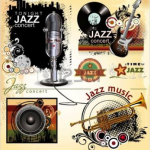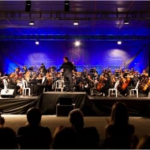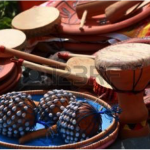Music
Music at Banbridge Academy will help you master skills of communication, self-confidence and creativity.
The music department aims to provide a rewarding learning experience for all pupils, to broaden their musical understanding, and to encourage their personal and social development.
Our overall aims are:
- To encourage pupils to develop as individuals and as contributors to society, the economy and the environment through active engagement in musical activities;
- Develop their understanding and appreciation of a variety of different types of music;
- Understand the skills required to communicate through music and to take part in music making
- Develop wider life skills, including creative and critical thinking aesthetic sensitivity and emotional and cultural development
Magazine Articles
Banbridge Academy Magazine 2021-2022: Music Article
Banbridge Academy Magazine 2022-2023: Music Article
Banbridge Academy Magazine 2023-2024: Music Article
Key Stage 3
Each pupil receives 2 periods of Music per week throughout Key Stage 3. Pupils will have opportunities to develop their understanding and skills, develop as individuals, develop as contributors to society, the economy and the environment by participating in Units of Work such as:
GCSE Music
Banbridge Academy enters pupils for examinations with CCEA. Pupils study the following Areas of Study, with emphasis on Composing and Appraising, Performing and Appraising and Listening and Appraising:
Listening and Appraising – 35%
One examination comprising (1 hour 30minutes) three sections – Section A Compulsory Areas of Study, Section B on unfamiliar music related to the areas of study, Section C an extended piece of writing on elements of music within a set work.
- Popular Music
- Musical Traditions in Ireland
- Film Music
- Western Classical Music
Composing and Appraising – 30%
Controlled assessment
Students create 2 compositions, one in response to a pre-release stimulus and one is free choice.
Teachers mark the tasks, and CCEA moderate the results.
Performing and Appraising – 35%
One solo and one ensemble performance and a short viva voce discussion to evaluate the performance with the examiner.
AS/A2 Music
Pupils have the opportunity to extend their Music education further by undertaking a full A-Level in the subject. This is an extension of the GCSE with 3 units, Performing and Appraising, Composing and Appraising and Listening and Appraising
AS Unit 1 – Performing and Appraising – 35% of AS, 14% of A2
Solo Performance lasting 5 – 7 minutes – at least Grade 4 standard of the accredited graded music examinations. Viva Voce
AS Unit 2 – Composing and Appraising – 35% of AS, 14% of A2
Pupils compose one piece of music (1½ – 2½ mins) and use either sequencing or multitrack recording technology to create a recorded performance of their composition. They must also include a maximum of 1000 words reflective commentary.
Listening and Appraising – 30% of AS, 12% of A2
There are 3 compulsory Areas of Study
- Music for Orchestra 1700 – 1900
- Sacred Vocal Music (Anthems)
- Secular Vocal Music (Musicals)
Two external written examinations
- Test of Aural Perception – 1 hour and a written Examination – 2 hours
A2 Unit 1 – Performing and Appraising – 21% of A2
Solo Performance lasting 8 – 10 minutes – at least Grade 5 standard of the accredited graded music examinations. Viva Voce
AS Unit 2 – Composing and Appraising – 21% of A2
Pupils compose one piece of music (2 – 3 mins) and use either sequencing or multitrack recording technology to create a recorded performance of their composition. They must also include a maximum of 1200 words reflective commentary.
Listening and Appraising – 18% of A2
There are 3 compulsory Areas of Study
- Music for Orchestra in the 20th Century
- Sacred Vocal Music (Mass/Requiem)
- Secular Vocal Music (1600 to present day)
Two external written examinations – Test of Aural Perception – 1 hour 15 minutes and a written Examination – 2 hours





